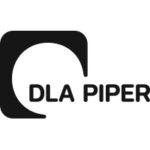-
What are the national authorities for banking regulation, supervision and resolution in your jurisdiction?
-
Which type of activities trigger the requirement of a banking licence?
-
Does your regulatory regime know different licenses for different banking services?
-
Does a banking license automatically permit certain other activities, e.g., broker dealer activities, payment services, issuance of e-money?
-
Is there a “sandbox” or “license light” for specific activities?
-
Are there specific restrictions with respect to the issuance or custody of crypto currencies, such as a regulatory or voluntary moratorium?
-
Do crypto assets qualify as deposits and, if so, are they covered by deposit insurance and/or segregation of funds?
-
If crypto assets are held by the licensed entity, what are the related capital requirements (risk weights, etc.)?
-
What is the general application process for bank licenses and what is the average timing?
-
Is mere cross-border activity permissible? If yes, what are the requirements?
-
What legal entities can operate as banks? What legal forms are generally used to operate as banks?
-
What are the organizational requirements for banks, including with respect to corporate governance?
-
Do any restrictions on remuneration policies apply?
-
Has your jurisdiction implemented the Basel III framework with respect to regulatory capital? Are there any major deviations, e.g., with respect to certain categories of banks?
-
Are there any requirements with respect to the leverage ratio?
-
What liquidity requirements apply? Has your jurisdiction implemented the Basel III liquidity requirements, including regarding LCR and NSFR?
-
Which different sources of funding exist in your jurisdiction for banks from the national bank or central bank?
-
Do banks have to publish their financial statements? Is there interim reporting and, if so, in which intervals?
-
Does consolidated supervision of a bank exist in your jurisdiction? If so, what are the consequences?
-
What reporting and/or approval requirements apply to the acquisition of shareholdings in, or control of, banks?
-
Does your regulatory regime impose conditions for eligible owners of banks (e.g., with respect to major participations)?
-
Are there specific restrictions on foreign shareholdings in banks?
-
Is there a special regime for domestic and/or globally systemically important banks?
-
What are the sanctions the regulator(s) can order in the case of a violation of banking regulations?
-
What is the resolution regime for banks?
-
How are client’s assets and cash deposits protected?
-
Does your jurisdiction know a bail-in tool in bank resolution and which liabilities are covered? Does it apply in situations of a mere liquidity crisis (breach of LCR etc.)?
-
Is there a requirement for banks to hold gone concern capital (“TLAC”)? Does the regime differentiate between different types of banks?
-
Is there a special liability or responsibility regime for managers of a bank (e.g. a "senior managers regime")?
-
In your view, what are the recent trends in bank regulation in your jurisdiction?
-
What do you believe to be the biggest threat to the success of the financial sector in your jurisdiction?
Taiwan: Banking & Finance
This country-specific Q&A provides an overview of Banking & Finance laws and regulations applicable in Taiwan.





















